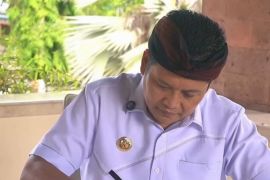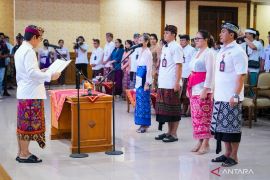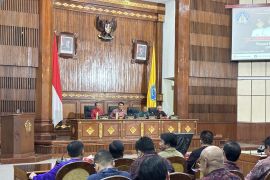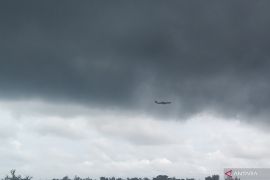Jakarta (Antara Bali) - Indonesia and the United States actually share the same values in terms of democracy and journalism which guarantee the freedom for the journalists to do their jobs, Steven Reiner, professor of broadcast and digital journalism at Stony Brook University said.
According to him, both countries are now standing the euphoria and perhaps the arrogance of the hubris of the previous administration that thought that one of the great missions of the US was to bring democracy to the world that just sort of waiting for it.
Currently, in many parts of the world where people argue that democracy in fact is in retreat that we are in a short of democratic trend as can be seen on what is happening in Turkey, Russia, Europe and certainly the US administration, expose a number of new obstacles of journalism such as the disseminating of fake news.
"The vibrant robust journalism and the survavibility of democracy are hand in hand. One cannot survive without the other. So that is why we have a lot in common," Reiner marked during a workshop of journalism held by American embassy in Jakarta, Wednesday.
As the world is commemorating World Press Freedom Day every 3 May, he said that press freedom in Indonesia is probably a little bit more fragile compared to the US.
As the third biggest democracy in the world and has a long history of the freedom of the press, the process of implementing press freedom in Indonesia is still ungoing, unlike the US which press freedom had been safeguarded by many decisions and judgements made by the court system.
"So, I do not think you can take things for granted, necessarily as we do about press freedom. I think maintaining a democracy requires vibrant, powerful and free news media," Reiner noted.
On the other hand, the Indonesian Press Council states that the press freedom in Indonesia is healthy compared to its neighboring countries in the region.
Although the latest reports released by Freedom House and Committee to Protect Journalists stated that Indonesian press was still "partly-free," he insisted the country had freedom of press, as could be seen from the growth of the media business.
"We have 47 thousand media which are growing freely because people can easily develop that business," he noted. (WDY)









